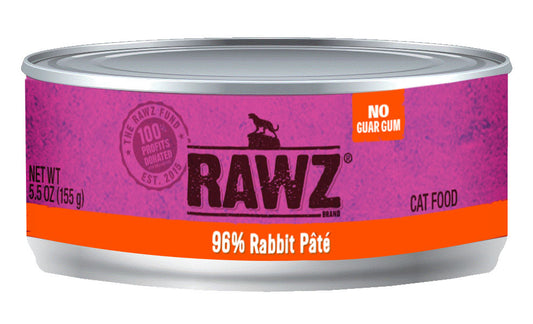Easter is a time for celebration, and giving pets like chicks, ducks, and bunnies has become a beloved tradition for many families. While these animals are undeniably cute and can be a fun way to introduce children to the joys of pet ownership, they come with unique responsibilities that many don’t realize. In this post, we’ll explore why these animals may not be the best Easter gift and what you need to know before bringing one into your home.
1. The Cuteness Trap: Why These Animals Are Often Chosen as Easter Pets
Chicks, ducks, and bunnies are all incredibly adorable when they’re small, and it’s easy to see why they’re often chosen as Easter gifts. Their fluffy feathers and soft fur make them irresistible to children and adults alike. However, this “cuteness trap” can lead to impulsive decisions, where people get excited about the idea of having a fluffy pet without fully understanding the commitment required to care for them.
While these animals are charming, they grow quickly, and their needs become more demanding as they age. What starts as a cute Easter gift can soon turn into a responsibility that people aren’t prepared for.
2. Lifelong Commitments: The Reality of Raising These Pets
Chicks, ducks, and bunnies may seem like low-maintenance pets at first, but they require a lot more care than people often realize. These animals have lifespans of around 5 to 10 years, and many people underestimate the long-term commitment they entail. Let’s break it down:
-
Chicks and Ducks: While they may be small and cute initially, both chicks and ducks require specialized care. They need a proper living environment (such as a chicken coop or duck pond), and they must be kept clean to avoid diseases. Additionally, they need a balanced diet that supports their health, and their living spaces must be kept free of parasites.
-
Bunnies: Rabbits are not just small and fluffy—they are highly social animals that require daily interaction, ample space to roam, and regular grooming. They also need a specific diet, including fresh vegetables and high-quality hay, to maintain their digestive health. Rabbits are notorious for chewing on anything they can find, so pet-proofing your home is a must.
3. Are They Low Maintenance? Not Quite
Many people believe that bunnies, chicks, and ducks are relatively low-maintenance because of their small size, but this isn’t the case. These pets need more than just food and water:
-
Special Diets: Unlike traditional pets like cats or dogs, these animals have specific dietary needs. For instance, ducks require access to water to eat properly and clean themselves, while bunnies need high-fiber hay to maintain healthy digestion. Failing to meet these nutritional requirements can lead to serious health problems.
-
Proper Housing: Chicks, ducks, and bunnies all require proper housing. Bunnies need a safe, clean area where they can hop around, and ducks need access to water for swimming and cleaning themselves. Without the right habitat, these animals can become stressed and ill.
-
Regular Veterinary Care: Like all pets, these animals require regular veterinary checkups to ensure they stay healthy. However, not all vets are equipped to treat these animals, so finding one with experience in exotic or farm animals can be difficult. Not seeking professional care when needed can result in serious health issues.
4. The Emotional and Physical Commitment
Aside from the physical care, these animals need emotional attention and social interaction. Chicks and ducks may be cute, but they quickly become accustomed to routine care and, if neglected, can become stressed, leading to behavioral issues. Bunnies are especially social and enjoy interacting with humans, so if they’re left alone too often, they may develop anxiety or even become destructive.
For families, it’s important to consider whether everyone is on board with the long-term responsibility of caring for these animals. Chicks, ducks, and bunnies require daily feeding, cleaning, and interaction. If you're planning to give one as a gift, ensure that the recipient understands the work involved and is ready for the responsibility.
5. Are They the Right Pets for Kids?
While these animals can be great for teaching kids responsibility, they are not necessarily the best choice for younger children. Ducks and chicks require delicate care, and their needs may be too complex for young ones to handle. Rabbits, while friendly, can become overwhelmed and skittish with too much handling, especially by children who may not understand how to interact gently with them.
If you’re considering these pets for children, make sure they understand how to care for them properly and are old enough to help with tasks like cleaning, feeding, and providing attention.
6. A Responsible Approach to Easter Pets
If you’re considering giving a chick, duck, or bunny as an Easter gift, it’s crucial to approach the decision responsibly. First and foremost, do thorough research about the animal’s needs and make sure you’re ready to commit for the long haul. Instead of impulsively buying one for a holiday, consider volunteering at a local farm or animal shelter to give children a chance to experience caring for animals without the lifelong responsibility.
Additionally, consider other alternatives, like plush animals or educational gifts, that can teach children about pets without introducing the challenges of live animal care.
Think Before You Buy
While chicks, ducks, and bunnies are cute and often seem like fun Easter gifts, they require a significant amount of care and attention. These pets are not low-maintenance, and they are not short-term commitments. If you choose to bring one into your home, be prepared to meet their long-term care needs, provide a proper habitat, and spend time with them every day!
Remember, adopting a pet is a decision that impacts both your family and the animal for many years to come. Before giving one as a gift, take the time to research and ensure you're ready for the responsibility.





